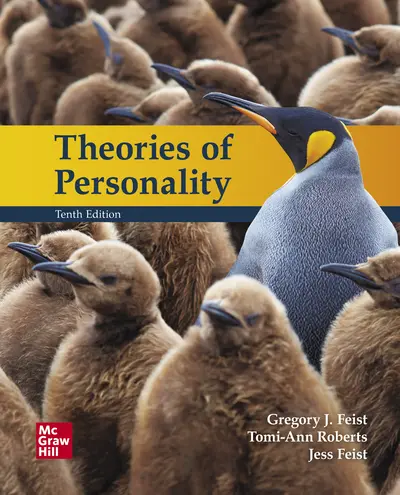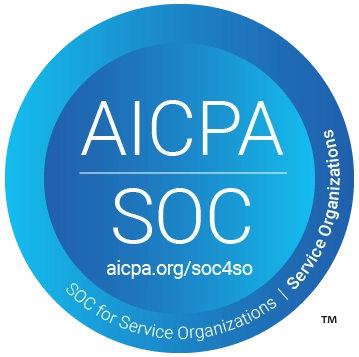My Account Details


Theories of Personality, 10th Edition
Format Options:
-
Lowest Price!
eBook from $57.33 -
Print from $70.00 -
Connect from $112.47
McGraw Hill eBook
Textbook Rental (150 Days Access)
- Rent for a fraction of the printed textbook price
- Complete text bound in hardcover or softcover
Loose-Leaf Purchase
Unbound loose-leaf version of full text
Shipping Options
- Standard
- Next-day air
- 2nd-day air
Orders within the United States are shipped via FedEx or UPS Ground. For shipments to locations outside of the U.S., only standard shipping is available. All shipping options assume the product is available and that processing an order takes 24 to 48 hours prior to shipping.
Note: Connect can only be used if assigned by your instructor.
Connect (180 Days Access)
- Digital access to a comprehensive online learning platform
- Includes homework, study tools, eBook, and adaptive assignments
- Download the free ReadAnywhere app to access the eBook offline
Connect + Loose-Leaf
- Comprehensive online learning platform + unbound loose-leaf print text package
- Connect includes homework, study tools, eBook, and adaptive assignments
- Download the free ReadAnywhere app to access the eBook offline
Shipping Options
- Standard
- Next-day air
- 2nd-day air
Orders within the United States are shipped via FedEx or UPS Ground. For shipments to locations outside of the U.S., only standard shipping is available. All shipping options assume the product is available and that processing an order takes 24 to 48 hours prior to shipping.
* The estimated amount of time this product will be on the market is based on a number of factors, including faculty input to instructional design and the prior revision cycle and updates to academic research-which typically results in a revision cycle ranging from every two to four years for this product. Pricing subject to change at any time.
Instructor Information
Quick Actions (Only for Validated Instructor Accounts):
Theories of Personality provides a comprehensive foundation on the nature of personality theory, as well as its contributions to science. Coverage of each theory encompasses a biographical sketch of each theorist, related research, and applications to real life. Written by two preeminent psychology professors, Gregory J. Feist, and Tomi-Ann Roberts, this program is engaging and student-friendly introduction to Personality Psychology.
The tenth edition provides new studies and sections on topics such as the importance of the internet and social media to various personality theories, content on real-ideal self-discrepancy as it relates to online gaming, and new information on changes in personality over time. The Connect course for this the tenth edition includes SmartBook, an adaptive reading and study experience which guides students to master, recall, and apply key concepts while providing automatically-graded assessments.
Part 1 Introduction
CHAPTER 1: Introduction to Personality Theory
Part 2 Psychodynamic Theories
CHAPTER 2: Freud: Psychoanalysis
CHAPTER 3: Adler: Individual Psychology
CHAPTER 4: Jung: Analytical Psychology
CHAPTER 5: Klein: Object Relations Theory
CHAPTER 6: Horney: Psychoanalytic Social Theory
CHAPTER 7: Erikson: Post-Freudian Theory
CHAPTER 8: Fromm: Humanistic Psychoanalysis
Part 3 Humanistic/Existential Theories
CHAPTER 9: Maslow: Holistic-Dynamic Theory
CHAPTER 10: Rogers: Person-Centered Theory
CHAPTER 11: May: Existential Psychology
Part 4 Dispositional Theories
CHAPTER 12: Allport: Psychology of the Individual
CHAPTER 13: McCrae and Costa’s Five-Factor Trait Theory
Part 5 Biological/Evolutionary Theories
CHAPTER 14: Eysenck’s Biologically Based Factor Theory
CHAPTER 15: Buss: Evolutionary Theory of Personality
Part 6 Learning-Cognitive Theories
CHAPTER 16: Skinner: Behavioral Analysis
CHAPTER 17: Bandura: Social Cognitive Theory
CHAPTER 18: Rotter and Mischel: Cognitive Social Learning Theory
CHAPTER 19: Kelly: Psychology of Personal Constructs
Main Features
- LMS Integration
- Print/Loose-Leaf Book Add-On Availability
- Presentation Slides & Instructor Resources
- Question & Test Banks
- Adaptive Assignments
- Student Progress Reporting & Analytics
- Essay Prompts
- Polling
- Prebuilt Courses
- Interactive Exercises
- eBook Access (ReadAnywhere App)
- Remote Proctoring (Proctorio)
- Subject-Specific Tools
About the Author
Jess Feist
Jess Feist is emeritus professor of Psychology at McNeese State University in Louisiana.
Gregory Feist
Gregory Feist (Ph.D. University of California, Berkeley) is Associate Professor of Psychology in Adult Development at San Jose State University. Dr. Feist is widely published in the psychology of creativity, the psychology of science, and the development of scientific talent. One of his major goals is establishing the psychology of science as a healthy and independent study of science, along the lines of the history, philosophy, and sociology of science. His teaching efforts have been recognized by outstanding teaching awards at both the University of California, Davis and the University of California, Berkeley.
Tomi-Ann Roberts
Tomi-Ann Roberts (PhD, Stanford University) is Professor of Psychology at Colorado College. Her research and teaching center on the consequences of sexual and self-objectification for the physical, emotional, and cognitive wellbeing of girls and women. The first paper she co-authored on this topic, Objectification Theory, is the most cited article in the over 40-year history of the APA journal Psychology of Women Quarterly. She leverages psychological science as an expert witness and consultant in cases involving objectification as a form of sexism and gender discrimination.
Accessibility
Creating accessible products is a priority for McGraw Hill. We make accessibility and adhering to WCAG AA guidelines a part of our day-to-day development efforts and product roadmaps.
For more information, visit our accessibility page, or contact us at accessibility@mheducation.com
Affordability
Reduce course material costs for your students while still providing full access to everything they need to be successful. It isn't too good to be true - it's Inclusive Access.
Need support? We're here to help - Get real-world support and resources every step of the way.

